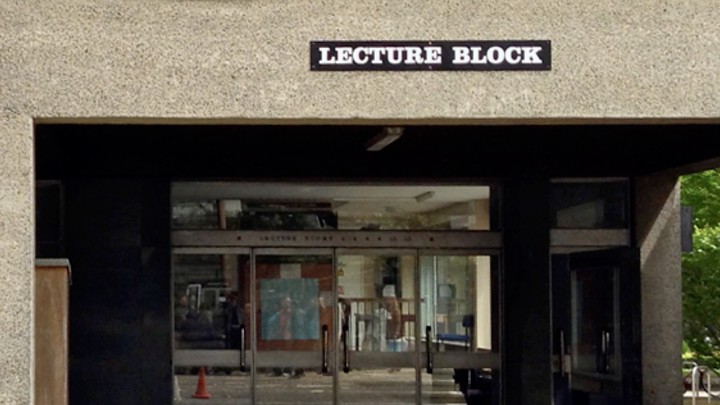Verificationism

Course description
What is the connection between the meaning of a sentence and its verification conditions? This series of four lectures will present the motivations and fate of the early-twentieth century verification theory of meaning.
Feel free to contact me if you have any suggestions, questions, or comments about this course.
General reading
- AYER, A.J., Language, Truth and Logic. 2nd ed. (London: Gollancz, 1946), Introduction & ch. 1.
- QUINE, W.V., ‘Two Dogmas of Empiricism’, Philosophical Review, 60 (1951): 20-43. http://www.jstor.org/stable/2181906.
- MISAK, Cheryl, Verificationism (London: Routledge, 1995).
- HAACK, Susan, Philosophy of Logics (Cambridge: Cambridge University Press, 1978), ch. 7 ‘Theories of truth’.
Where and when
Friday 12-1. Lecture Block Room 4
Lecture 1: The Verification Principle
Logical empiricism aims to build a theory of meaning on an empiricist foundation. This lecture will introduce its central thesis: that, in Morris Schlick's words, “the meaning of a statement consists in its method of verification”.
Suggested Reading
- AYER, A.J., Language, Truth and Logic. 2nd ed. (London: Gollancz, 1946), Introduction & ch. 1.
- SCHLICK, Moritz, ‘Meaning and Verification’, Philosophical Review, 45 (1936): 339-69.
- MISAK, Cheryl, Verificationism: Its History and Prospects (London: Routledge, 1995), especially ch. 2.
Lecture 2: Criticisms of the Verification Principle
This lecture will look at the reception of the verificationist theory of meaning and develop several objections to the formulation and consequences of its central thesis.
Suggested Reading
- BERLIN, Isaiah, ‘Verification’, Proceedings of the Aristotelian Society, 39 (1938-39): 225- 48. http://www.jstor.org/stable/4544328.
- CHURCH, Alonzo, ‘Review of Language, Truth, and Logic’, The Journal of Symbolic Logic, 14 (1949): 52-53.
- HEMPEL, Carl G., ‘Problems and Changes in the Empiricist Criterion of Meaning’, Revue Internationale de Philosophie, 11 (1950): 41-63.
Lecture 3: Dogmas of Empiricism
This lecture will discuss W.V.O. Quine's terrific and radical criticism of the entire project of logical empiricism, which is aimed at the ideology underlying the verification principle.
Suggested Reading
- QUINE, W.V., ‘Two Dogmas of Empiricism’, Philosophical Review, 60 (1951): 20-43. http://www.jstor.org/stable/2181906.
- REY, Georges, ‘The Analytic/Synthetic Distinction’, in E.N. Zalta, ed., Stanford Encyclopedia of Philosophy (Winter 2016 edition).
Lecture 4: Semantic Holism
This lecture will explore Quine's positive suggestion for how an empiricist theory of meaning should look.
Suggested Reading
- QUINE, W.V., The Ways of Paradox (Cambridge, MA: Harvard University Press, 1966), ch. 10 ‘Necessary truth’.
- DANCY, Jonathan, Introduction to Contemporary Epistemology (Oxford: Blackwell, 1985), ch. 6 ‘Empiricist theories